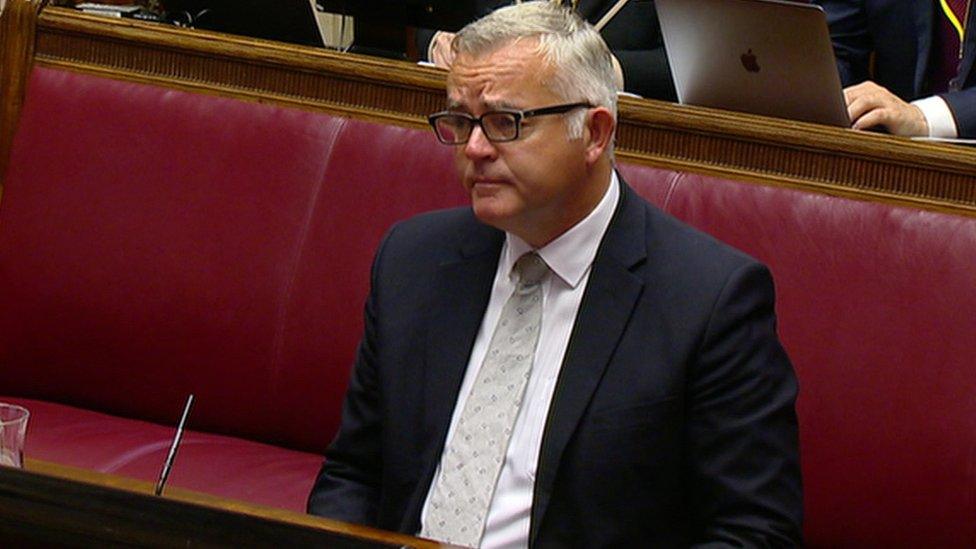RHI Inquiry: Five moments you might have missed
- Published
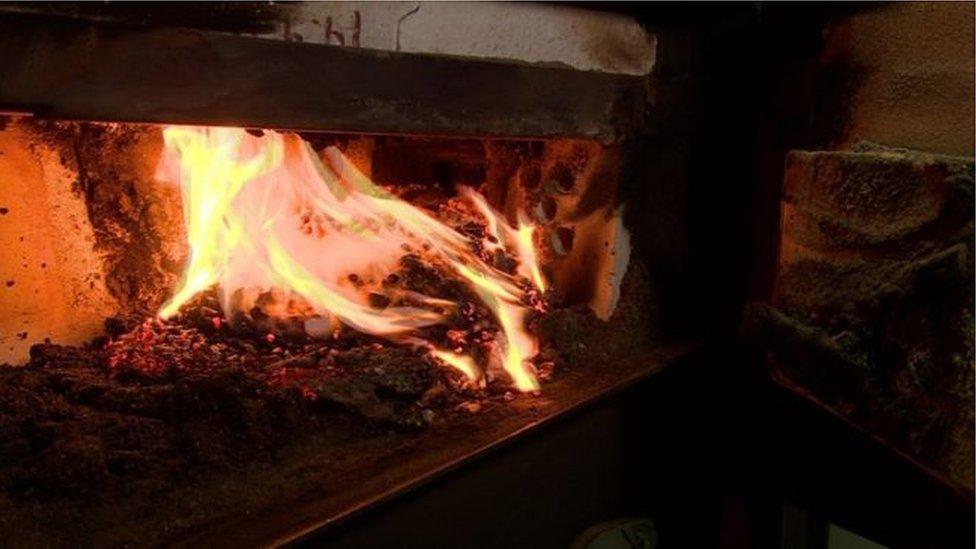
The RHI scheme was established to encourage uptake of eco-friendly heat systems over the use of fossil fuels
The public inquiry into the Renewable Heat Incentive (RHI) scheme has sat for 92 days of hearings so far.
It is examining what went wrong with Northern Ireland's flawed green energy project.
With so many revelations emerging, it can be hard to keep up. The inquiry only sat for two days this week.
But BBC News NI was watching, and has picked out five moments you might have missed.

1. 'Morally' wrong to manipulate RHI - Alastair Nicol
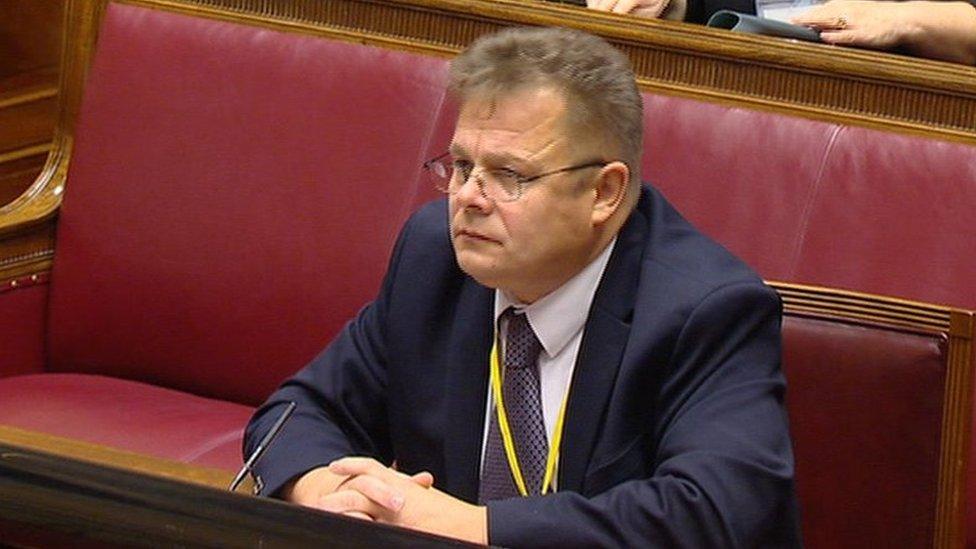
Alastair Nicol is a heating consultant who gave advice to businesses about how to be more cost efficient with energy and waste
The inquiry started again with evidence from a new witness - heating expert Alastair Nicol, who worked for a consultancy firm that helped clients of the business development agency, Invest NI.
Invest NI was part of the enterprise department, which also held responsibility for the RHI scheme.
Mr Nicol's role was to identify ways for businesses to improve their efficiency, and he told the inquiry he was made aware of the critical flaw in the RHI scheme as early as January 2013, several months after RHI had come into effect.
He recognised the scheme's "perverse incentive" - that claimants could effectively earn more money the more fuel they burned because the subsidies on offer for renewable fuels were far greater than the cost of the fuels themselves.
He said he passed on the concerns to government agencies, including Invest NI, but that little was done about it.
Mr Nicol also described his "exasperation" at seeing how the scheme could be manipulated for profit, adding: "From a moral point of view, installing that solution purely to milk money out of RHI is also unacceptable."

2. Why were RHI concerns not passed on? - Donal Lunny
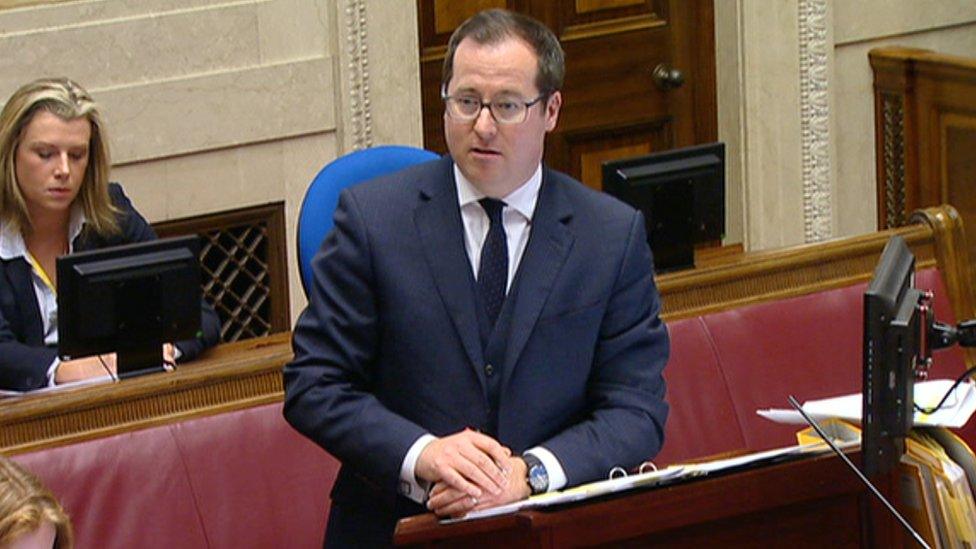
Inquiry counsel Donal Lunny said one of the key questions for the panel was to determine what government agencies knew about RHI flaws and when
During Mr Nicol's evidence session, he said he made it clear to Invest NI and another government agency, Ofgem (Office of Gas and Electricity Markets), which was helping administer the scheme, that there were fundamental flaws in how it had been designed.
Inquiry panellist Dame Una O'Brien said Mr Nicol had delivered his reports in "plain English" and that it would have been obvious to anyone what the concerns were, not just those who had an expert understanding of biomass energy issues.
Mr Nicol said people were putting in inappropriate boilers in order to "grab the RHI money", and that he advised Invest NI of this.
Dame Una said she had heard "weeks of evidence" from enterprise department officials who said they did not realise the disastrous flaws with RHI until several years later.
Inquiry counsel Donal Lunny then said one of the key issues he would be seeking to clarify during the hearings was: "If (the problem) was apparent to Mr Nicol, why not Deti? And was it apparent to Invest NI and what did they do about it?"

3. 'Why question government policy?' - Jim Clarke
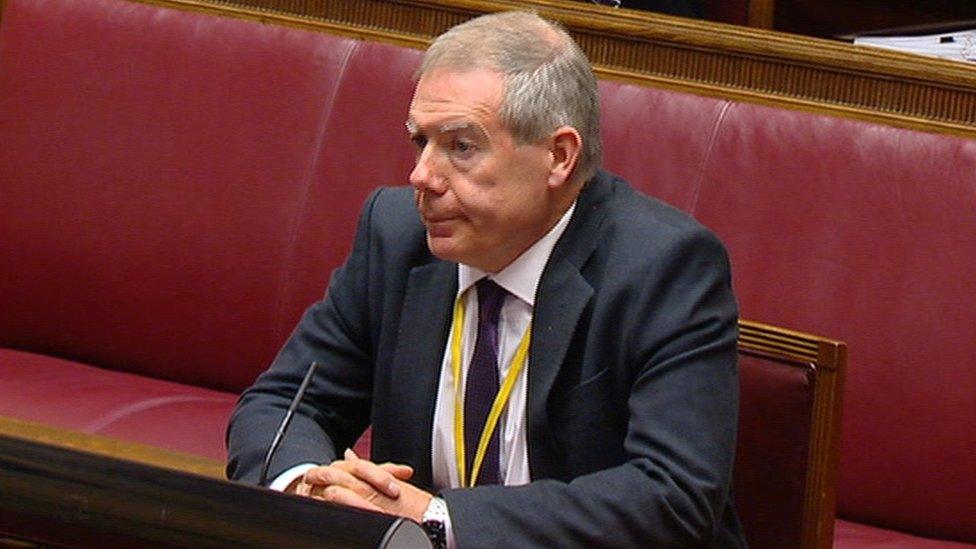
Invest NI official Jim Clarke said no-one in the agency questioned the flaws of RHI that were flagged up, because the scheme was deemed government policy
On Thursday afternoon, Invest NI responded to that very question.
One of its officials, Jim Clarke, was involved in liaising with heating consultants like Alastair Nicol about the scheme and passing on advice to Invest NI's clients.
He acknowledged that there had been a "missed opportunity" to take the concerns of potential abuse forward to the enterprise department, which had created the scheme - and that he should have done so.
Mr Clarke said the view amongst his colleagues was that RHI was government policy so "why question government policy".
Inquiry chair Sir Patrick Coghlin pointed out that it "could not have been (departmental) policy to have loopholes" that would lead to the "wastage of public money".
Mr Clarke said he naively assumed that the enterprise department would have bench-marked RHI against other similar schemes elsewhere.
Sir Patrick thanked him for his "refreshing" honesty in admitting he should have done more.

4. 'Missed opportunity' to raise RHI concerns - Alastair Hamilton
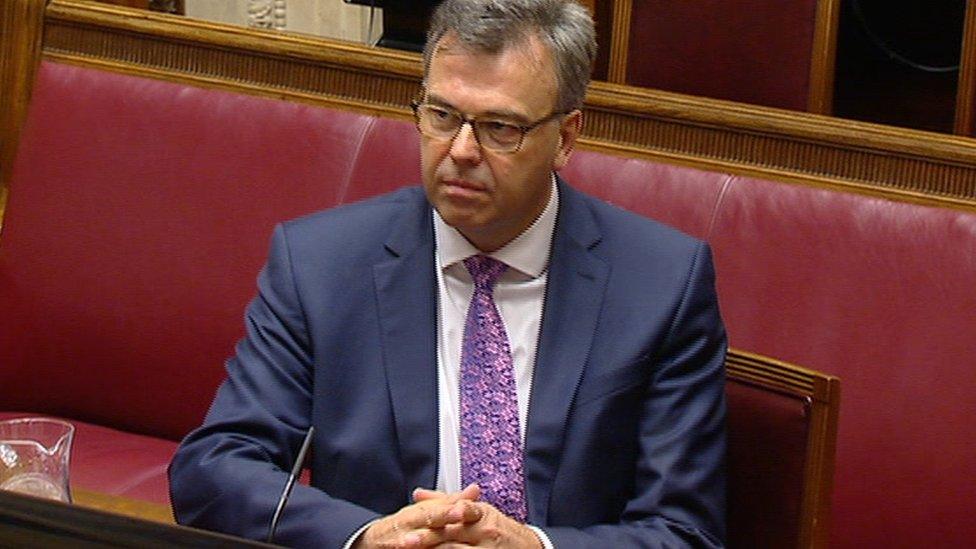
Alastair Hamilton has been the chief executive of Invest NI since 2009
On Friday, the head of Invest NI, Alastair Hamilton, appeared before the inquiry for the first time.
He was asked if his agency had failed to raise concerns about flaws with the RHI scheme with the enterprise department when Invest NI was first told about it, in early 2013.
Mr Hamilton said he personally had not become aware of the scheme until 2014/15, but acknowledged Invest NI could have done something to raise the alarm sooner.
He told the inquiry: "Clearly there was a missed opportunity here, for all the reasons as to why that might have happened - we had evidence, we had information in reports that clearly showed this scheme was not operating as it was intended."
Mr Hamilton said as accounting officer, he was responsible for that.

5. Moy Park 'got indirect RHI benefit' - Janet McCollum
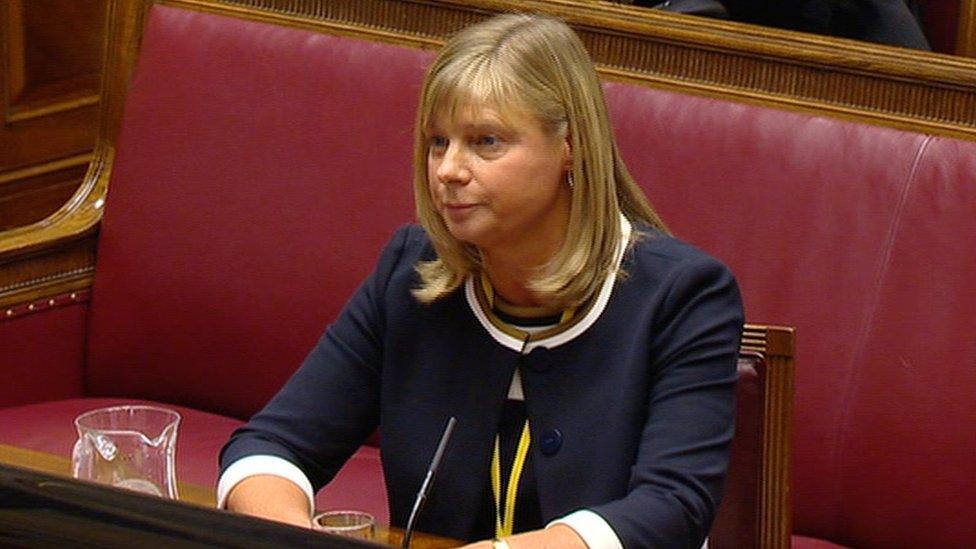
Janet McCollum said she could see how Moy Park had benefited indirectly from the RHI scheme
On Friday afternoon, Janet McCollum, former chief executive of Moy Park, returned to the inquiry after her first brief appearance in June.
Mrs McCollum said she now accepts the poultry giant got an "indirect financial benefit" from RHI.
Many poultry farmers were RHI claimants and almost all of them supplied Moy Park.
The firm was only paying half of farmers' biomass fuel bills - but producers could bear the cost because huge RHI subsidies made up the income gap.
Mrs McCollum told the inquiry that Moy Park did not realise that the fuel cost differential was acting as an indirect benefit to the firm at that point.
But inquiry counsel Donal Lunny suggested it didn't take a "genius" to work it out.

On Tuesday, the inquiry promises to deliver some potentially explosive moments.
The DUP leader Arlene Foster, the party's communications officer and former special adviser (Spad) John Robinson, another former Spad Stephen Brimstone and former Spad and now-DUP chief executive Timothy Johnston are all set to appear in the coming week.
You can keep up-to-date with the latest from the RHI inquiry on BBC News NI's live page.
- Published5 September 2018
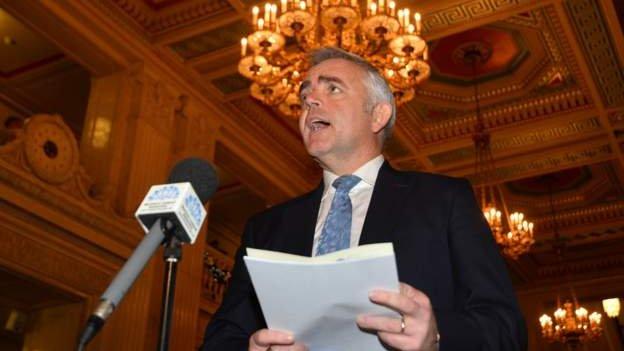
- Published5 September 2018
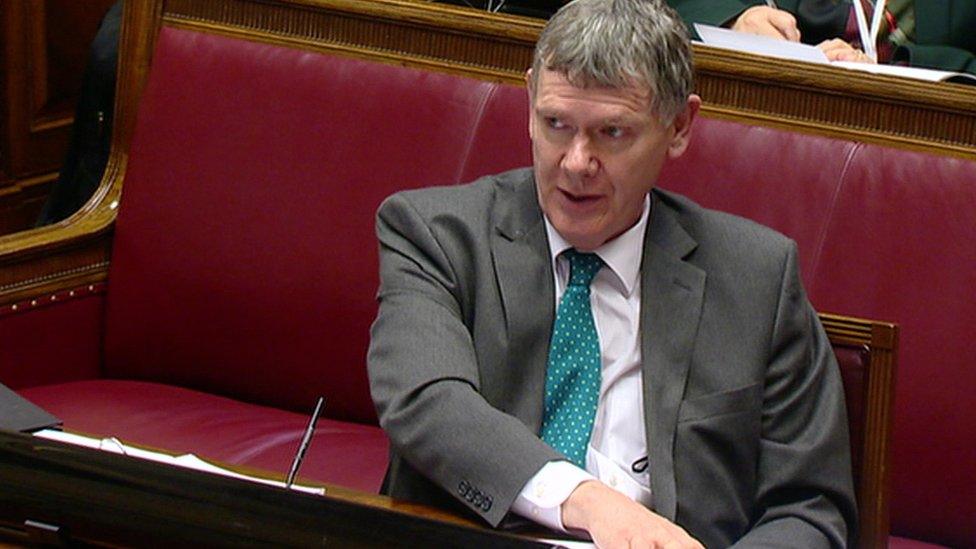
- Published7 September 2018
